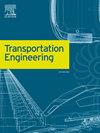优化基于可再生能源的插电式混合动力汽车充电站,实现印度的可持续交通
Q1 Engineering
引用次数: 0
摘要
印度迅速增长的人口需要创新的交通解决方案,电动汽车(ev)正在成为当地可行和迫切的需求。然而,一个重要的障碍是充电站的部署不当,这给配电系统带来了压力。认识到可再生能源(RES)的环境效益,高优先级公交车现在配备了插电式混合动力汽车(PHEV)充电站,提高了有效利用。本研究利用元启发式优化技术,提出了一种高效的插电式混合动力充电站配置策略,其核心目标是建立一个具有成本效益的充电基础设施,同时保持配电系统网络的有效完整性。为了应对这些挑战,该研究采用了元启发式优化算法,并围绕可持续能源系统优化预测,以实现预期的输出。因此,该研究引入了一种新颖的方法,将最优充电站的分布概念化为一个带有附加参数的多目标问题。此外,本文还引入了创新的海象优化算法(Walrus Optimization Algorithm, WaOA),有效地解决了RES插电式混合动力汽车和充电站选址问题,有效地克服了收敛速度慢和局部最优的问题。实验结果证明了该模型在最小化成本函数方面的优越性。这项研究为在印度不断变化的景观中实现可持续交通提供了一条有希望的途径。本文章由计算机程序翻译,如有差异,请以英文原文为准。
Optimizing renewable energy-based plug-in hybrid electric vehicle charging stations for sustainable transportation in India
India's burgeoning population necessitates innovative transportation solutions, with electric vehicles (EVs) emerging as a locally viable and urgent need. However, a significant obstacle lies in the improper deployment of charging stations, which strains the power distribution system. Recognizing the environmental benefits of Renewable Energy Sources (RES), high-priority buses are now equipped with Plug-in Hybrid Electric Vehicle (PHEV) charging stations, bolstering effective utilization. This study leverages meta-heuristic optimization techniques to propose an efficient allocation strategy for PHEV charging stations powered by RES. The core objective is to establish a cost-effective charging infrastructure while upholding the effective integrity of the network in distribution system. To address these challenges, the study employs meta-heuristic optimization algorithms and optimizes forecasting around sustainable energy systems to achieve desired output. Consequently, the research introduces a novel approach, conceptualizing the distribution of optimal charging stations as a multi-objective problem with added parameters. Furthermore, this study tackles the RES PHEV and charging station site challenge by introducing the innovative Walrus Optimization Algorithm (WaOA), which effectively overcomes issues related to slow convergence and local optima. Experimental findings demonstrate the superiority of the proposed model in terms of minimizing the cost function. This research offers a promising pathway toward sustainable transportation in India's evolving landscape.
求助全文
通过发布文献求助,成功后即可免费获取论文全文。
去求助
来源期刊

Transportation Engineering
Engineering-Automotive Engineering
CiteScore
8.10
自引率
0.00%
发文量
46
审稿时长
90 days
 求助内容:
求助内容: 应助结果提醒方式:
应助结果提醒方式:


